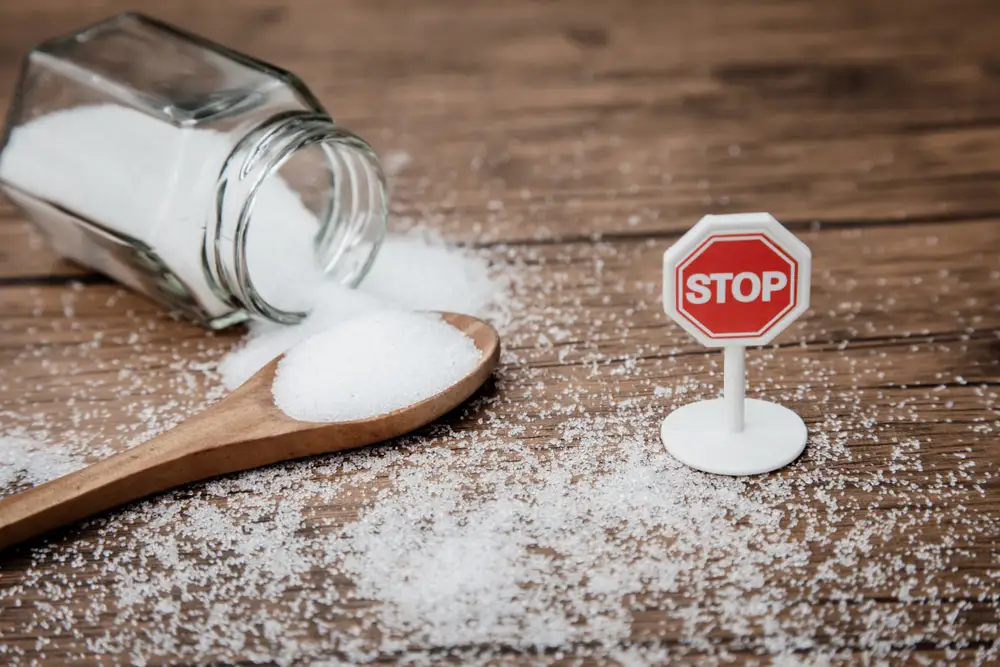Your nose is running like a tap, you’ve got a fever and you can’t stop sneezing … you’ve got one of those dreaded summer colds. But hold on … it’s summer! The reality is, colds don’t just happen in winter, and having a cold in summer is particularly inconvenient because it interferes with wonderful activities like holidays, getaways and outdoor sports. Here are some summer cold remedies that will have you having fun in the sun again in no time!
What Is The Difference Between A Winter And A Summer Cold?
Although they feel different, there really is no difference between a winter and a summer cold. Both are caused by the rhinovirus, which can spread and infect people just as easily in hot weather as in cold. Both types of colds are most often contracted by people placing their infected hands to their nose, mouth or eyes, and because both are caused by a virus, cannot be treated with antibiotics.
The biggest difference between winter and summer colds is how we respond to them. In winter, we’re naturally more inclined to huddle indoors under the doona in an effort to treat a cold, whereas, in summer, all we want to do is be outdoors enjoying the warm weather.
Your nose is running like a tap, you’ve got a fever and you can’t stop sneezing … you’ve got one of those dreaded summer colds. But hold on … it’s summer! The reality is, colds don’t just happen in winter, and having a cold in summer is particularly inconvenient because it interferes with wonderful activities like holidays, getaways and outdoor sports. Here are some summer cold remedies that will have you having fun in the sun again in no time!
What Is The Difference Between A Winter And A Summer Cold?
Although they feel different, there really is no difference between a winter and a summer cold. Both are caused by the rhinovirus, which can spread and infect people just as easily in hot weather as in cold. Both types of colds are most often contracted by people placing their infected hands to their nose, mouth or eyes, and because both are caused by a virus, cannot be treated with antibiotics.
The biggest difference between winter and summer colds is how we respond to them. In winter, we’re naturally more inclined to huddle indoors under the doona in an effort to treat a cold, whereas in summer, all we want to do is be outdoors enjoying the warm weather.
How Do I Know It’s A Cold And Not Caused By An Allergy?
Summer colds and allergies share similar traits like a runny nose, sneezing, congestion and an itchy or sore throat, but generally a cold will also include other symptoms like sweating, fever and coughing. If your symptoms disappear after a couple of weeks, you’ve probably had a summer cold that has run its course – allergy symptoms tend to persist longer, and tend to be consistent. Cold symptoms also tend to start mild, worsen over time and then return to mild.
The onset of symptoms is also different. With a cold, the onset of individual symptoms can occur at different times, whereas with allergies they all tend to come on at once. If your symptoms tend to get worse if you travel to a different region, it’s more likely you have an allergy as well, because potential allergens and pollinating plants can differ markedly from one location to another.
What Are The Best Ways To Treat A Summer Cold?
The duration of a cold all depends on your body’s immune system, which can be dependent on the fluids we drink, the foods we eat, and the activities we participate in. Many classic winter cold treatments can also apply to summer colds as well, and many of them are well known. They include:
- It’s easier said than done when the sun is shining and outdoor activities are beckoning, however in order for your body to recover from a virus, you need to get plenty of sleep and rest. You should also try to avoid too much stress and excessive activity that could challenge your immune system.
- Staying hydrated and nourished. While you can’t flush a summer cold out of your system, drinking plenty of fluids (water is best) can help prevent dehydration. Orange juice can be helpful because of its vitamin C content, and hot beverages like tea can be soothing and abate symptoms. Avoid drinks that dehydrate like coffee, energy drinks and alcohol, and make sure your intake of vitamins and minerals is plentiful. Eat lots of fresh fruit and vegetables and foods high in immune-boosting nutrients like zinc, iron and vitamin C.
- Keeping your hands clean. Because germs are typically spread directly or indirectly from contagious people to healthy people by hand, your greatest defence is to embrace ‘hand hygiene’. It basically means you should be washing your hands often (and properly) several times a day with lots of warm, soapy water. Hand sanitizers are also useful and should be utilised in places like workplaces, classrooms and doctors’ offices, and mini versions that can be popped into your handbag or glove box are ideal for daily use.
- Spending time outdoors. Sure you may not feel like facing the world outside, however, it’s a fact that we’re more likely to catch a summer cold indoors rather than outdoors. Enclosed spaces and air-conditioned environments pose many virus-sharing risks, and can ultimately increase your chances of getting sick in summer. It’s not wise to partake in strenuous activities, however, a little time relaxing in the sun can actually benefit because the sun’s ultraviolet rays can also help kill cold viruses.
- Trying herbal remedies. Herbs can’t actually kill or fight a cold, however, some studies show that they can help support the immunise system, and help your body fight off a cold. These include liquorice root, elderberry, and classic go-tos like ginger and garlic.
- Treating the symptoms. While there is no cure for the common cold, your GP or local pharmacist can suggest a number of over-the-counter treatments including fever reducers, nasal decongestants and cough suppressants that may help ease some of the symptoms.
How Long Will My Summer Cold Last And When Should I See My Doctor?
Summer colds generally last about as long as any winter cold, which is on average around ten days in total, and symptoms tend to drastically improve around day seven. Children tend to get over a cold much quicker than adults, usually in less than a week, however, depending on factors like age and lifestyle, some adults may have to suffer through a cold for up to two weeks.
The more you take care of yourself and make a point of adopting cold care remedies the quicker your cold will clear up, however, if your symptoms persist longer than two weeks it’s important that you see your doctor. If symptoms drastically increase, or you are at risk of your summer cold turning into a serious illness due to your age or other health conditions, you should book an appointment at our Algester Medical Centre or Acacia Ridge Family Practice as soon as possible.
Is Your Summer Cold Ruining Your Holiday Time?
Summer colds and allergies share similar traits like a runny nose, sneezing, congestion and an itchy or sore throat, but generally a cold will also include other symptoms like sweating, fever and coughing. If your symptoms disappear after a couple of weeks, you’ve probably had a summer cold that has run its course – allergy symptoms tend to persist longer, and tend to be consistent. Cold symptoms also tend to start mild, worsen over time and then return to mild.
The onset of symptoms is also different. With a cold, the onset of individual symptoms can occur at different times, whereas with allergies they all tend to come on at once. If your symptoms tend to get worse if you travel to a different region, it’s more likely you have an allergy as well, because potential allergens and pollinating plants can differ markedly from one location to another.
What Are The Best Ways To Treat A Summer Cold?
The duration of a cold all depends on your body’s immune system, which can be dependent on the fluids we drink, the foods we eat, and the activities we participate in. Many classic winter cold treatments can also apply to summer colds as well, and many of them are well known. They include:
- It’s easier said than done when the sun is shining and outdoor activities are beckoning, however in order for your body to recover from a virus, you need to get plenty of sleep and rest. You should also try to avoid too much stress and excessive activity that could challenge your immune system.
- Staying hydrated and nourished. While you can’t flush a summer cold out of your system, drinking plenty of fluids (water is best) can help prevent dehydration. Orange juice can be helpful because of its vitamin C content, and hot beverages like tea can be soothing and abate symptoms. Avoid drinks that dehydrate like coffee, energy drinks and alcohol, and make sure your intake of vitamins and minerals is plentiful. Eat lots of fresh fruit and vegetables and foods high in immune-boosting nutrients like zinc, iron and vitamin C.
- Keeping your hands clean. Because germs are typically spread directly or indirectly from contagious people to healthy people by hand, your greatest defence is to embrace ‘hand hygiene’. It basically means you should be washing your hands often (and properly) several times a day with lots of warm, soapy water. Hand sanitizers are also useful and should be utilised in places like workplaces, classrooms and doctors’ offices, and mini versions that can be popped into your handbag or glove box are ideal for daily use.
- Spending time outdoors. Sure you may not feel like facing the world outside, however, it’s a fact that we’re more likely to catch a summer cold indoors rather than outdoors. Enclosed spaces and air-conditioned environments pose many virus-sharing risks, and can ultimately increase your chances of getting sick in summer. It’s not wise to partake in strenuous activities, however, a little time relaxing in the sun can actually benefit because the sun’s ultraviolet rays can also help kill cold viruses.
- Trying herbal remedies. Herbs can’t actually kill or fight a cold, however, some studies show that they can help support the immunise system, and help your body fight off a cold. These include liquorice root, elderberry, and classic go-tos like ginger and garlic.
- Treating the symptoms. While there is no cure for the common cold, your GP or local pharmacist can suggest a number of over-the-counter treatments including fever reducers, nasal decongestants and cough suppressants that may help ease some of the symptoms.
How Long Will My Summer Cold Last And When Should I See My Doctor?
Summer colds generally last about as long as any winter cold, which is on average around ten days in total, and symptoms tend to drastically improve around day seven. Children tend to get over a cold much quicker than adults, usually in less than a week, however, depending on factors like age and lifestyle, some adults may have to suffer through a cold for up to two weeks.
The more you take care of yourself and make a point of adopting cold care remedies the quicker your cold will clear up, however, if your symptoms persist longer than two weeks it’s important that you see your doctor. If symptoms drastically increase, or you are at risk of your summer cold turning into a serious illness due to your age or other health conditions, you should book an appointment at our Algester Medical Centre or Acacia Ridge Family Practice as soon as possible.
Is your summer cold ruining your holiday time? Contact us today on (07) 3711 2880 for a professional consultation.
What Causes Mouth Ulcers? How To Treat & Prevent Them Effectively
Mouth ulcers are a common oral condition that affect most people at some point in their lives. They can be uncomfortable, but they are usually harmless and will heal within 10 to 14 days without treatment. Here’s everything you need to know about mouth ulcers, including what they are, what causes them, the best treatments,…
Acute Vs Chronic Medical Conditions
No matter how old or young you are, we are all susceptible to acute and chronic medical conditions. Both conditions differ in how long they last and how severe the diagnosis is. An illness or condition can be as simple as the flu, or in a more severe case cancer or arthritis. Whether it is…
How Much Sugar Per Day?
Sugar is a type of carbohydrate and a source of energy for our bodies. It can occur naturally in foods like fructose in fruit, glucose in fruits and vegetables, and maltose in wheat and barley. However, manufacturers also often add sugar to extend the shelf life of foods, improve their appearance and/or make them taste…




